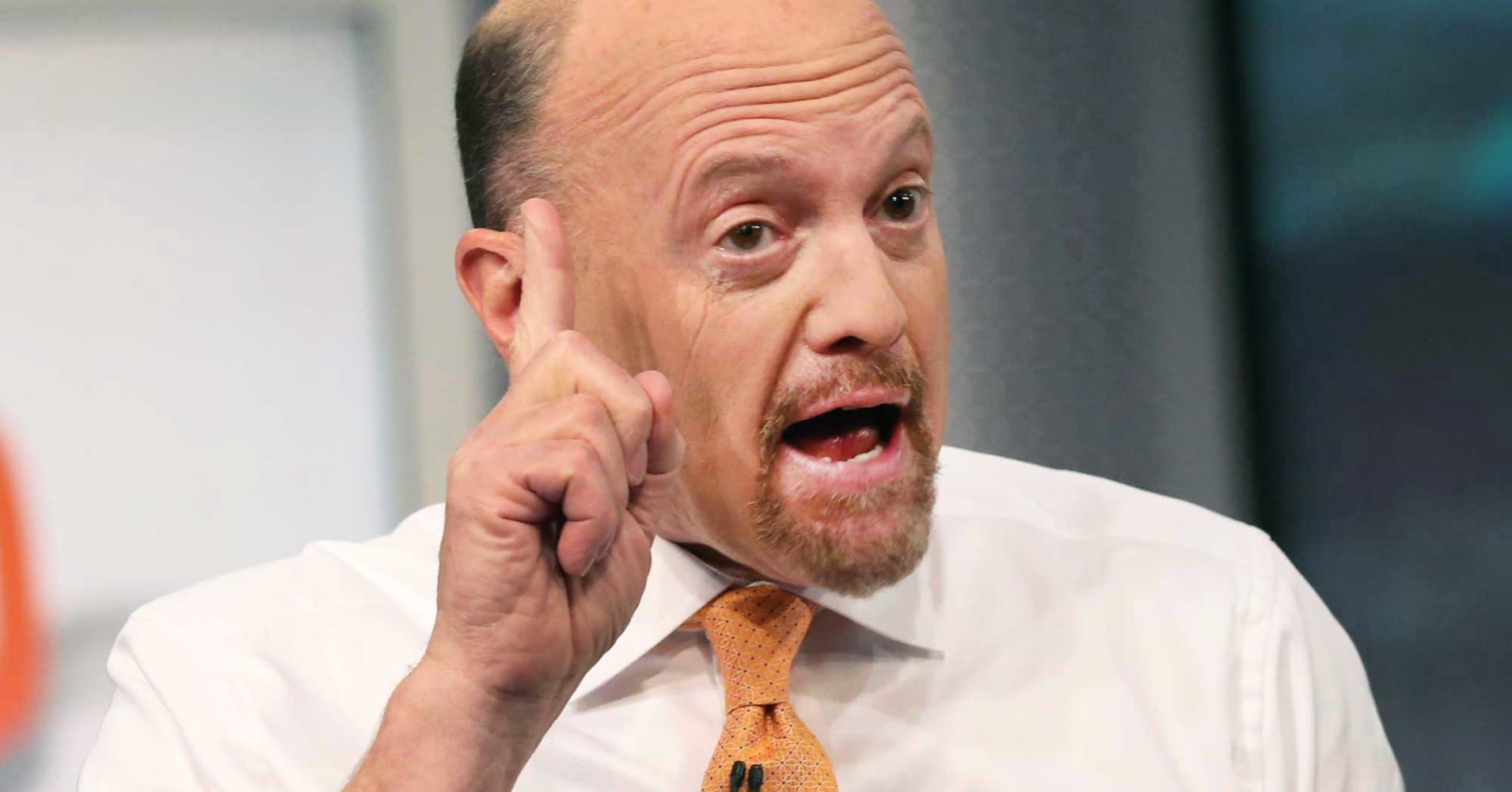The ability to personalize a product to your preference is the next major theme of the world’s digital revolution, CNBC’s Jim Cramer said Thursday, speaking from CNBC’s 1Market studio in the tech capital of San Francisco.
“The investable theme everybody’s talking about right here, right now? Personalization. It’s everywhere,” the “Mad Money” host said. “Technology has made it possible for mass-market goods and services to be tailored to suit your tastes.”
Not all companies are doing it right, though. Cramer pointed to the case of used-car retailer CarMax, which has been spending on building out its digital offerings to let customers narrow their selection of cars to their preferences.
“Digitizing a non-digital operation can be expensive,” he explained. “I think all of this spending on digital personalization has really crimped CarMax’s profitability in what has been a very commoditized, often hard-sell industry.”
For more of Cramer’s take on why personalization is the next big thing, click here.
As the digital world evolves, government regulations have to evolve with it, Aaron Levie, co-founder and CEO of cloud-based content management company Box Inc., told CNBC in an interview with Cramer.
“I think we’re in an incredibly precarious time because you have a lot of regulations and laws that were built for the 20th century and now, in the 21st century, with the amount of digital transformation that’s happening in every industry … we need a new set of laws that anticipate how much more dynamic this environment is that we live in today,” Levie said.
From health care to voting to transportation, consumer-facing industries are undergoing wholesale technological changes and upgrades, the CEO explained.
As more companies embrace private and public clouds, update their cybersecurity measures and exponentially grow their data stores, cloud companies like Box should take a “leadership position” in ensuring that the digital universe is well-regulated, he told Cramer.
To watch and read more about Levie’s interview, click here.
Big, lucrative tech companies have a responsibility to consider and address societal issues like homelessness, Cisco Systems Chairman and CEO Chuck Robbins told CNBC on Thursday.
“In this part of the world, affordable housing, homelessness, hunger — these are all issues that companies in Silicon Valley have to care about,” the CEO said in an exclusive interview with Cramer.
In March, Cisco announced its contribution to the homeless crisis: the company pledged to give $50 million to public-private initiative Destination: Home to battle homelessness in Santa Clara County, which has the third-highest rate of chronic homelessness in the United States.
“It just doesn’t feel like that should be occurring anywhere, much less in a wealthy county where we’ve seen so much prosperity,” Robbins told Cramer. “We’re just trying to do our part.”
To watch and read more about his interview, click here.
The place where Hewlett-Packard was born, a little garage that now sits near HP Inc.’s headquarters, could be considered “the birthplace of Silicon Valley,” Cramer said on Thursday in his interview with HP Inc. President and CEO Dion Weisler.
Weisler, who runs the spun-off half of Hewlett-Packard that deals in personal computers, printers and 3D printing, agreed.
“If innovation were a religion, this would be Jerusalem,” he told Cramer.
Weisler added that innovation is what’s taken HP Inc. to new heights in the three years since it separated from its former parent company — but what’s helped it maintain that strength has been trust, he said.
“We’re consistently delivering on the things that we said we would do. That’s important to gain trust. We’re a trusted brand,” he told Cramer. “If we were at a party, we would be the designated driver.”
To hear more about HP Inc.’s birthplace and sustainability efforts, watch Weisler’s full interview.
President Donald Trump’s claim that he rejected a meeting on trade with Canada struck Cramer as surprising given the country’s history of allyship with the U.S.
“I’m kind of stunned that President Trump could take on Canada, going totally ad hominem and totally hostile to our nation’s largest trading partner,” he said on Thursday. “I found myself thinking, ‘This is no longer the art of the deal; it’s the art of destruction.'”
Trump made his remarks at a Wednesday press conference during the week of the United Nations General Assembly, a week centered around international relations and policymaking. A spokeswoman for Canadian Prime Minister Justin Trudeau later said that “no meeting was requested” by the United States.
To Cramer’s surprise, however, the stock market — which in recent weeks has buckled on any news of escalating trade disputes — seemed to brush off the barbs.
Get the rest of the “Mad Money” host’s analysis by clicking here.
In Cramer’s lightning round, he breezed through his take on callers’ favorite stocks:
Halliburton Co.: “No, I’m going to have to ask you to stay away from it. The fact that it hasn’t moved up much at all during this big run in oil tells me that if oil comes back down, you’re really going to be in trouble.”
Verastem Inc.: “I know this company is a cancer, stem-cell spec. I am a huge believer in stem cell and a huge believer in anything that can stop cancer. It is a spec stock. You can own a little, [but] not more than that.”
Questions for Cramer?
Call Cramer: 1-800-743-CNBCWant to take a deep dive into Cramer’s world? Hit him up!
Mad Money Twitter – Jim Cramer Twitter – Facebook – Instagram – VineQuestions, comments, suggestions for the “Mad Money” website? madcap@cnbc.com

Leave a Reply
You must be logged in to post a comment.